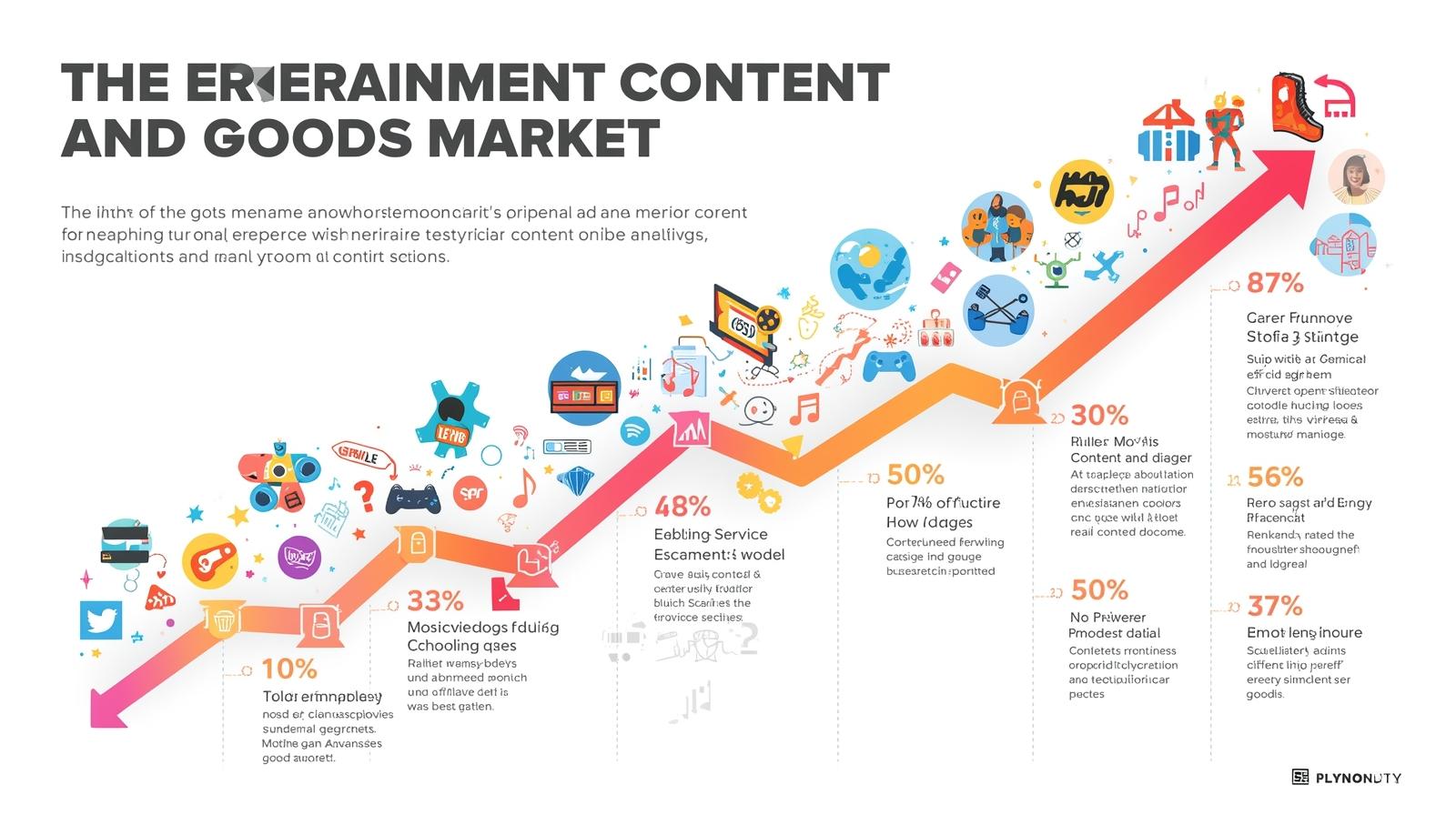As consumer preferences evolve and digital ecosystems expand, the entertainment industry is undergoing a massive transformation. At the heart of this change is the rapid integration of artificial intelligence (AI) and personalization technologies, which are reshaping how entertainment content is created, distributed, monetized, and consumed. From music streaming algorithms to personalized merchandise, the influence of AI is permeating every layer of the entertainment goods and services market.
The Rise of Intelligent Content Curation
One of the most visible ways AI is impacting entertainment is through intelligent content recommendation systems. Platforms like Netflix, Spotify, and YouTube use sophisticated machine learning algorithms to analyze user behavior, preferences, and patterns. These systems offer highly curated experiences that keep users engaged for longer periods by suggesting music, shows, and videos tailored to individual tastes.
This has not only increased user satisfaction but has also significantly boosted content consumption. Personalization engines help reduce choice fatigue while improving content discoverability, ensuring that smaller creators or niche genres can reach the right audiences.
AI-Powered Content Creation and Production
Beyond curation, AI is increasingly being used in the creation of entertainment content. Tools powered by generative AI can now produce music, write scripts, and even animate characters. Production houses are leveraging AI to streamline video editing, automate visual effects, and analyze scripts for emotional tone, pacing, and audience appeal.
This shift is reducing production timelines and costs while allowing for more experimental and data-informed storytelling. In video games, AI is also being used to design dynamic, player-specific narratives, generating new experiences for each user based on their play style and past decisions.
Download PDF Brochure @ https://www.marketsandmarkets.com/pdfdownloadNew.asp?id=206501829

Personalized Merchandise and Virtual Goods
Personalization extends beyond digital content into the realm of physical and virtual entertainment goods. Fan-focused merchandising has seen a resurgence with the help of AI-enabled e-commerce systems. Platforms can now recommend exclusive collectibles, apparel, or memorabilia based on fan behavior and content interaction. For example, someone who frequently streams a particular artist might receive personalized offers for concert merch or vinyl editions.
In the virtual space, personalized avatars, skins, and NFTs are becoming part of the entertainment experience. As metaverse platforms evolve, AI is playing a crucial role in customizing virtual identities and experiences that reflect individual user preferences.
Consumer Data and Behavioral Insights
The backbone of AI’s personalization power lies in data — particularly how platforms collect, analyze, and apply it. Entertainment companies now use advanced analytics to monitor real-time user engagement, predict trends, and adapt content strategies. AI can segment audiences more effectively than ever before, allowing marketers to launch precision-targeted campaigns, enhance fan engagement, and maximize revenue per user.
However, this also raises important questions around data privacy, transparency, and user consent. As personalization becomes more invasive or predictive, consumers and regulators are demanding stronger guardrails to protect personal data and ensure ethical AI use.
Shaping the Future of Fan Engagement
AI is redefining what fan engagement looks like. Chatbots powered by natural language processing enable artists and franchises to interact with fans at scale. Virtual influencers and AI-generated celebrities are gaining popularity, particularly among Gen Z audiences. These interactions, although synthetic, are designed to feel personal and immersive.
Live entertainment is also being transformed. AI is used to personalize concert experiences, tailor AR/VR environments, and adjust lighting or soundscapes in real time based on crowd reactions. This fusion of AI and personalization is turning fans from passive observers into active participants in their entertainment journeys.
Challenges and Ethical Considerations
While the opportunities are vast, the integration of AI in entertainment isn’t without challenges. Concerns about content authenticity, algorithmic bias, over-commercialization, and creative originality are being debated across the industry. The line between personal preference and manipulation is thin, and companies must navigate this terrain carefully to maintain trust with audiences.
Additionally, smaller creators or studios may struggle to keep pace with large-scale AI investments made by tech giants, raising questions about diversity and representation in a personalized but potentially monopolized market.
Conclusion: A New Era of Entertainment Experience
The convergence of AI and personalization is ushering in a new era for the entertainment goods and services market. Whether it’s through smarter content delivery, adaptive experiences, or customized merchandise, the industry is becoming more responsive, immersive, and user-centric than ever before. For companies that embrace these technologies responsibly, the reward is deeper audience loyalty, new revenue streams, and a stronger competitive edge.
As AI continues to evolve, it won’t just change how we consume entertainment—it will redefine what entertainment means in the first place.
FAQ:
1. What role does AI play in the entertainment industry today?
AI is transforming the entertainment industry by automating content creation, enhancing user experiences through recommendation systems, personalizing marketing, and optimizing production workflows. It’s used in everything from writing scripts and composing music to editing videos and predicting consumer behavior.
2. How does personalization affect entertainment content delivery?
Personalization tailors the content a user sees based on their past behavior, preferences, and demographics. This makes platforms like Netflix, Spotify, and YouTube more engaging by showing users content they are more likely to enjoy, reducing search time and increasing satisfaction.
3. What are examples of AI in content creation?
Examples include AI-generated music, automated video editing, predictive storylines in video games, and even AI-written scripts. Tools like OpenAI’s Sora (for video) or Suno (for music) are pioneering creative automation, allowing creators to produce high-quality content faster.
4. How are entertainment goods being personalized?
Using AI-driven insights, companies are offering fans personalized merchandise, such as apparel tied to their favorite characters, artists, or games. Online stores can recommend collectibles or limited-edition items based on a user’s viewing or listening history.
